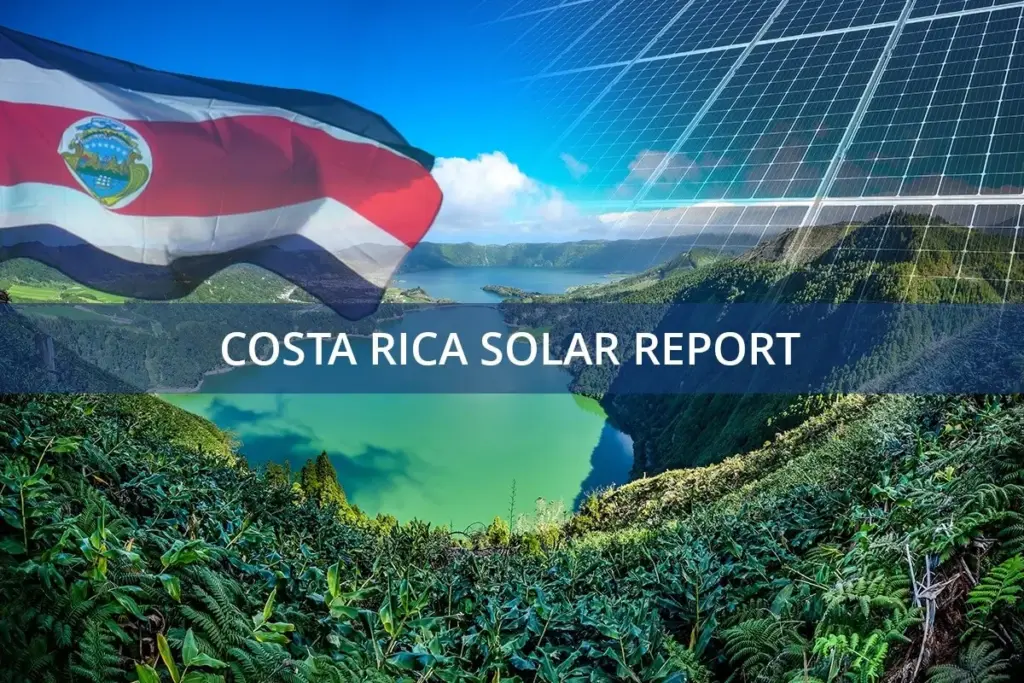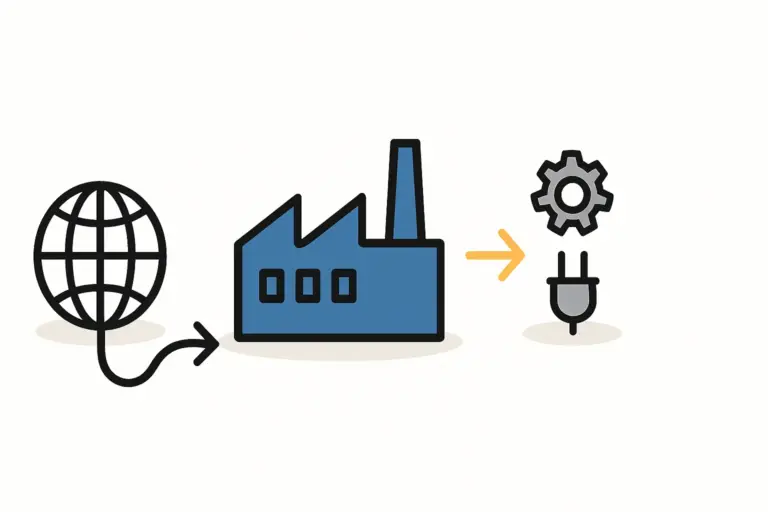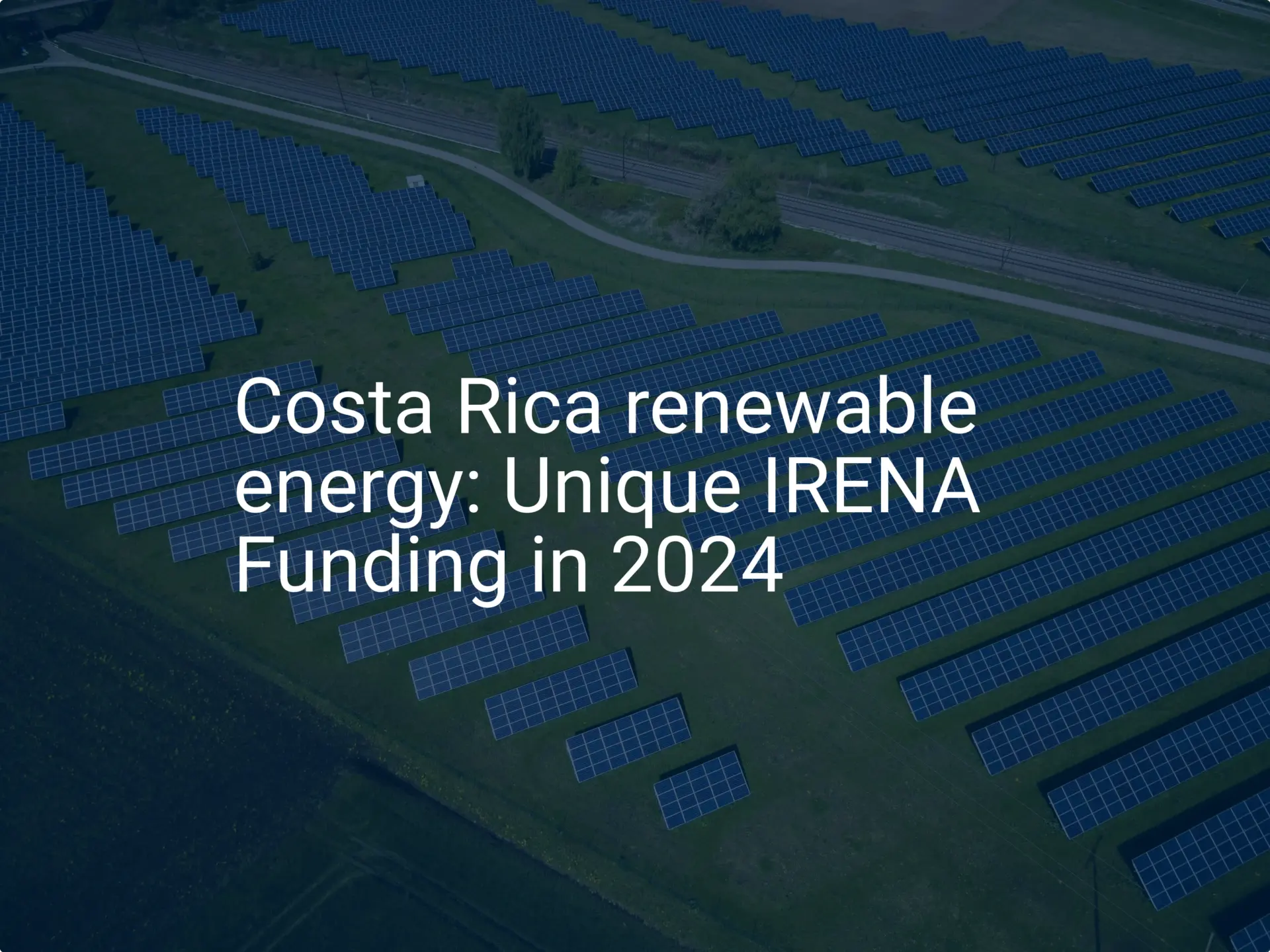Entrepreneurs planning to supply the North and South American solar markets must navigate a complex landscape of import tariffs, logistical challenges, and high initial operating costs. Choosing the right manufacturing base can be the deciding factor between a profitable venture and one that fails to launch. While international trade law can be daunting, some countries offer frameworks specifically designed to overcome these barriers.
Costa Rica, with its stable political climate and strategic geographic position, offers a compelling solution through its highly developed Free Trade Zone (FTZ) Regime. This system provides substantial financial incentives that significantly reduce the initial capital required and improve long-term profitability for new solar module manufacturers. This guide outlines the regime’s core benefits, requirements, and application process, showing a clear path for professionals considering this strategic move.
What is Costa Rica’s Free Trade Zone (FTZ) Regime?
Established under Law No. 7210, Costa Rica’s Free Trade Zone Regime is a cornerstone of its foreign investment strategy, offering government incentives to companies making new investments in the country. The regime is managed by PROCOMER (Promotora del Comercio Exterior de Costa Rica), the official trade promotion agency.
These zones are more than just geographical areas; they represent a special legal and economic status. A company operating under the FTZ regime receives a host of exemptions and benefits, primarily focused on export-oriented activities. For a capital-intensive industry like solar module manufacturing—which relies on importing machinery and raw materials and exporting finished products—this framework is particularly advantageous. Furthermore, the country’s 40-plus industrial parks offer modern infrastructure ready for new projects.

Key Financial Incentives for Solar Module Manufacturers
The financial advantages of operating within a Costa Rican FTZ are substantial, directly addressing the primary cost centers for a new manufacturing facility: capital equipment, raw materials, and corporate taxes.
Exemption from Import Duties
Perhaps the most significant benefit for a new solar factory is the 100% exemption on all import duties for raw materials, components, and capital goods.
For a solar module manufacturer, this means:
- Capital Equipment: All core solar manufacturing equipment—including stringers, laminators, cell testers, and framing machines—can be imported without tariffs. This significantly lowers the initial setup cost.
- Raw Materials: Key components like solar cells, EVA encapsulant, backsheets, tempered glass, and aluminum frames are also exempt from import taxes, directly reducing the production cost per module.
This incentive alone dramatically lowers the barrier to entry and reduces the required working capital for the first years of operation.
Corporate Income Tax Holiday
Companies approved under the FTZ regime benefit from a full exemption on corporate income tax, typically structured as follows:
- 100% exemption for the first 8 years of operation.
- 50% exemption for the following 4 years.
This 12-year period of reduced tax liability allows a new enterprise to reinvest profits into growth, innovation, and market expansion during its most critical early stages.
Other Tax Exemptions
Beyond import duties and income tax, the regime includes several other valuable exemptions:
- Withholding Tax: A 100% exemption on withholding taxes for payments abroad, such as royalties and fees.
- Sales Tax: Exemption from sales tax on the local purchase of goods and services required for operation.
- Export and Local Taxes: A full exemption on export taxes and local sales taxes helps ensure products remain competitive in the global market.
Eligibility and Investment Requirements
To qualify for the FTZ regime, a company must meet specific investment criteria designed to be accessible while ensuring a meaningful economic contribution.
The primary requirement is a new investment in fixed assets, with a minimum threshold that depends on the facility’s location:
- Inside an Industrial Park: A minimum investment of USD $150,000. This option is well-suited for most small to medium-sized manufacturing startups, as it leverages existing infrastructure.
- Outside an Industrial Park: For a “stand-alone” facility, a higher minimum investment of USD $2,000,000 is required.
The initial investment for a solar production line typically falls well within these parameters, making the FTZ regime a practical option. A key condition for manufacturers is that their operations must be primarily export-oriented—a natural fit for a company aiming to supply regional markets from a central hub.
The Application Process: A Step-by-Step Overview
The application process is a straightforward procedure managed by PROCOMER, but it requires careful preparation. Experience from J.v.G. turnkey projects globally has shown that a clear, comprehensive project proposal is the most critical element for a successful application.
The process generally follows these steps:
-
Project Proposal: The applicant prepares a detailed investment project that includes financial projections, job creation estimates, a technical description of the manufacturing process, and an environmental impact assessment. A robust business plan for solar panel manufacturing serves as the foundation for this proposal.
-
Submission to PROCOMER: The formal application and all supporting documentation are submitted to PROCOMER for evaluation.
-
Evaluation: The agency assesses the project’s potential economic and social benefits for Costa Rica, including its technological contribution, employment impact, and adherence to environmental standards.
-
Approval: Upon successful evaluation, the government grants an “Acuerdo de Otorgamiento” (Granting Agreement), which formalizes the company’s status and benefits under the Free Trade Zone Regime.

Why Costa Rica is a Strategic Location for Supplying the Americas
Beyond the powerful financial incentives, Costa Rica offers a unique combination of advantages that make it an ideal hub for solar manufacturing:
- Geographic Proximity: Its location provides efficient sea and land access to major markets in North, Central, and South America.
- Trade Agreements: The country is part of numerous free trade agreements, including the Dominican Republic-Central America Free Trade Agreement (CAFTA-DR), which facilitates access to the United States market.
- Political and Economic Stability: Costa Rica is known for its long-standing democracy and stable economy, reducing investment risk.
- Skilled Workforce: A strong public education system produces a skilled and technically proficient workforce.
- Commitment to Sustainability: The nation’s brand is synonymous with environmental stewardship and renewable energy, creating a positive alignment for a solar technology company.

Frequently Asked Questions (FAQ)
What is PROCOMER’s exact role in the FTZ application?
PROCOMER acts as the one-stop shop for investors. It not only evaluates and processes applications but also provides guidance and support throughout the setup phase.
Can a company in an FTZ sell its solar modules within Costa Rica?
The regime is primarily for exporters. While provisions exist for limited sales to the domestic market, these are subject to specific conditions and require payment of applicable national taxes. The core business model should be focused on exportation.
How long does the FTZ application process typically take?
Timelines can vary depending on a project’s complexity, but a well-prepared application can often be processed within a few months.
Are there specific environmental standards a solar manufacturer must meet?
Yes. All companies operating under the FTZ regime must comply with Costa Rica’s national environmental regulations. An environmental impact assessment is a mandatory part of the application.
Conclusion and Next Steps
For entrepreneurs and established companies looking to supply the Americas with solar modules, Costa Rica’s Free Trade Zone Regime offers a remarkably effective framework. Its comprehensive tax exemptions—particularly on imported capital goods and raw materials—directly address the largest financial hurdles a new factory faces. These benefits, combined with the country’s strategic location and stable business environment, create a compelling investment case.
Leveraging these benefits begins with meticulous planning. A thorough understanding of the investment requirements and a professionally prepared project proposal are essential for both a successful application and a profitable, long-term operation.






